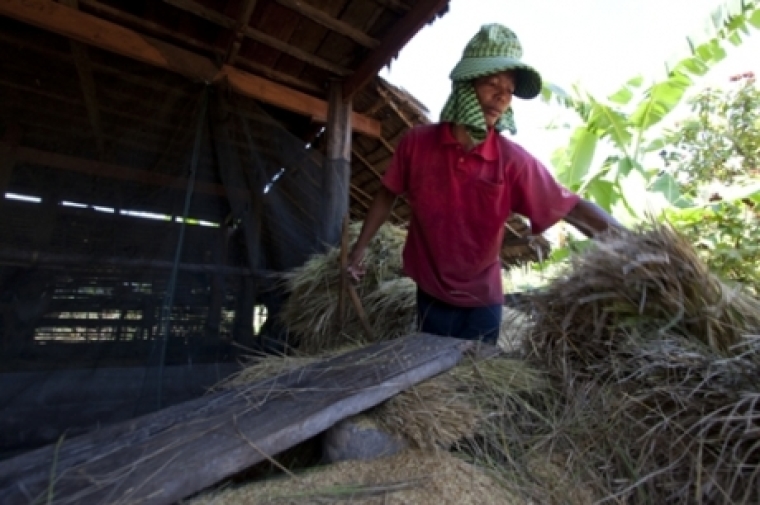
The development agency said that lessons learned in Asia's 'Green Revolution' about the damage caused by intensive farming are being ignored in the race to help Africa feed itself.
A change in farming methods and technology allowed large parts of Asia, particularly the Philippines, to increase yields and reduce hunger throughout the '60s, '70s and '80s.
It was only later in the '90s that signs began to emerge of the damage that had been caused, largely because of the use of a new breed of rice that produced larger crops but which required the heavy use of fertilisers and pesticides.
The toll on the land and environment included widespread soil degradation, a loss of biodiversity, and an increase in greenhouse gas emissions from industrial agriculture.
Christian Aid's "Healthy Harvests" report says that the problems experienced in Asia should give African governments "more than a pause for thought".
Instead of nurturing sustainable farming techniques, African governments are opting for a "quick-fix solution", it said.
The Asian experience has prompted the development agency to warn against the use of modern seed varieties that produce better yields if treated with synthetic fertilisers and pesticides.
Whilst Christian Aid welcomed the interest of major backers like the World Bank, Britain's Department for International Development, and the Bill and Melinda Gates Foundation, it said the solutions they advocate focus too narrowly on the use of such methods.
"Governments and donors need to significantly re-balance their current focus on quick-fix, external-input-intensive 'solutions' towards a much greater support for sustainable agro-ecological approaches," the report says.
The report points to successful techniques in sustainable agriculture including diversification, nutrient recycling – where waste from one sub-system is used as an input in another - the adoption of natural solutions to pests, and the greatest possible use of renewable and locally available resources like seeds and manure.
It says that measures minimising or avoiding the use of chemical inputs, and incorporating resource-conserving technologies are already being successfully adopted by farming communities in Asia and Africa and are helping to produce larger crop yields.
The report goes on to question whether the Alliance for a Green Revolution in Africa (AGRA), founded by the Rockefeller and Bill and Melinda Gates Foundations, has a vested interest in promoting the use of fertiliser intensive farming practices because of the funding it is providing to agro-dealers in African countries.
Christian Aid urged Africa's leaders and donors to learn the lessons of Asia's agricultural transition.
"In recognition of the challenges facing agriculture, donors and governments have in recent years made welcome new political and financial commitments to smallholder farming, especially in Africa," the report said.
"However, as this report outlines, the solutions for Africa advocated by donors, governments and the initiatives of private foundations have tended to centre around the promotion of synthetic fertilisers and pesticides, which are costly for farmers and very often resource depleting.
"This drive for a new 'Green Revolution' for Africa has tended to sideline more sustainable, farmer-led approaches.
"For example, recent input-subsidy programmes in Africa have brought significant short-term benefits in certain cases, but they are looking increasingly unsustainable and risk sidelining investment in greener alternatives.
"The experience of Asia's Green Revolution holds some very important lessons for policy-makers globally."